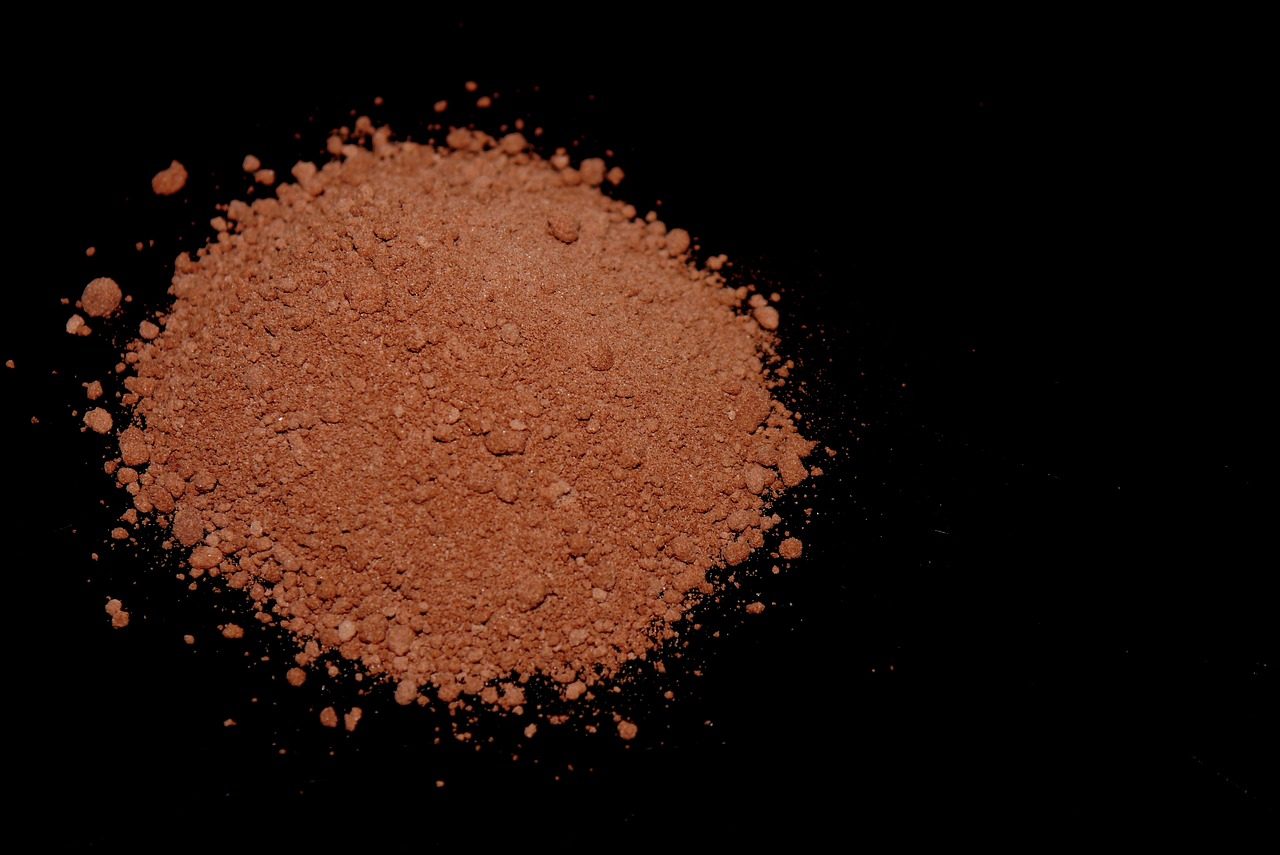Protein powder has become a highly popular supplement in the fitness industry, used by both athletes and individuals striving to achieve their health and fitness goals. Packed with essential amino acids, protein powder serves as a convenient and efficient source of protein, aiding in muscle growth, recovery, and overall performance. Whether you’re engaging in intense workouts or simply looking to increase your protein intake, incorporating protein powder into your daily routine can undoubtedly provide the nutritional support you need to optimize your fitness journey.

What is Protein Powder?
Definition
Protein powder is a dietary supplement that is made from various sources of protein. It is designed to provide an easy and convenient way to increase your protein intake, especially for individuals who may struggle to meet their protein requirements through whole foods alone.
Types of Protein Powder
There are several types of protein powder available on the market, each derived from different sources. The most common types include whey protein, casein protein, soy protein, pea protein, and hemp protein. Each type has its own unique set of benefits and characteristics, making it important to choose the right one based on your individual needs and preferences.
Why is Protein Important?
Protein is an essential macronutrient that plays numerous roles in the body. It is necessary for the growth, repair, and maintenance of tissues, including muscles, bones, and organs. Protein is also involved in the production of enzymes, hormones, and antibodies, which are vital for various bodily functions. Additionally, protein is satiating and can help regulate appetite, making it beneficial for weight management.
Benefits of Protein Powder
Muscle Building
One of the primary benefits of protein powder is its ability to support muscle building and repair. Protein is made up of amino acids, which are the building blocks of muscle. Consuming protein powder after resistance training can help promote muscle protein synthesis, leading to increased muscle mass and strength over time.
Weight Loss
Protein powder can also aid in weight loss efforts. High-protein diets have been shown to increase satiety and reduce cravings, ultimately leading to a decrease in overall calorie intake. Protein also has a higher thermic effect compared to other macronutrients, which means that it requires more energy to digest and metabolize. This increased energy expenditure can contribute to weight loss.
Improved Recovery
Physical activity, especially intense exercise, can lead to muscle damage and inflammation. Protein powder can help enhance post-exercise recovery by providing the necessary amino acids for muscle repair and reducing muscle soreness. Consuming protein powder shortly after a workout can help speed up the recovery process and alleviate exercise-induced muscle damage.
Increased Protein Intake
Protein powder serves as a convenient way to increase your daily protein intake. Many individuals, particularly athletes, older adults, and vegetarians/vegans, may struggle to meet their protein needs solely through food. Protein powder can be easily incorporated into shakes, smoothies, and recipes, allowing for a quick and convenient source of protein anytime, anywhere.
How to Choose the Right Protein Powder
Consider Your Goals
Before choosing a protein powder, it is important to consider your goals. Are you looking to build muscle, lose weight, or simply increase your protein intake? Different protein powders have varying characteristics and benefits, so selecting the right one based on your specific objectives will help optimize results.
Protein Source
The source of protein is another crucial factor to consider. Whey protein is the most popular and widely available option, as it contains a complete profile of essential amino acids and is easily digested. Casein protein, on the other hand, is absorbed more slowly, making it ideal for sustained muscle protein synthesis. Soy protein is a plant-based option that is suitable for vegetarians and vegans, while pea protein and hemp protein offer alternatives for individuals with dietary restrictions or sensitivities.
Additional Ingredients
Many protein powders contain additional ingredients such as vitamins, minerals, and flavorings. It is important to read the ingredient label and choose a protein powder that aligns with your preferences and dietary needs. Some individuals may prefer protein powders with minimal additives, while others may look for specific ingredients like probiotics or digestive enzymes for additional health benefits.
Allergies and Dietary Restrictions
If you have allergies or dietary restrictions, it is crucial to select a protein powder that is safe for consumption. Some protein powders may contain allergens such as dairy, soy, or gluten, which can cause adverse reactions in sensitive individuals. Look for protein powders that are specifically labeled as allergen-free or suitable for your specific dietary needs.
Different Types of Protein Powders
Whey Protein
Whey protein is derived from milk and is one of the most popular types of protein powder. It has a high bioavailability and is quickly absorbed, making it an excellent choice for post-workout recovery. Whey protein is rich in all essential amino acids, particularly branched-chain amino acids (BCAAs) that are crucial for muscle growth and repair.
Casein Protein
Similar to whey protein, casein protein is also derived from milk. However, it is absorbed at a slower rate, providing a sustained release of amino acids over a longer period of time. This slow digestion makes casein protein an ideal option before bedtime, as it can support overnight muscle recovery and prevent muscle breakdown during fasting periods.
Soy Protein
Soy protein is derived from soybeans and is a suitable option for vegetarians and vegans. It is a complete protein source, meaning it contains all essential amino acids. Soy protein has been shown to have numerous health benefits, including supporting heart health and reducing the risk of certain diseases such as osteoporosis.
Pea Protein
Pea protein is derived from yellow split peas and is an excellent plant-based protein option. It is easily digestible and contains all essential amino acids, making it a suitable choice for individuals with dietary restrictions or sensitivities. Pea protein has also been shown to support muscle growth and promote feelings of fullness.
Hemp Protein
Hemp protein is made from hemp seeds and is a complete protein source. It is rich in omega-3 and omega-6 fatty acids, as well as fiber and minerals. Hemp protein is suitable for vegetarians and vegans, and its nutty flavor adds a unique taste to protein shakes and recipes.

How to Use Protein Powder
Time of Consumption
The timing of protein powder consumption can influence its effectiveness. Consuming protein powder within 30-60 minutes post-workout is recommended to maximize muscle protein synthesis and enhance recovery. However, protein powder can also be consumed at other times throughout the day to increase overall protein intake and support muscle maintenance.
Dosage
The recommended protein powder dosage may vary depending on factors such as body weight, activity level, and goals. As a general guideline, aim for approximately 20-30 grams of protein per serving. However, it is important to consult with a healthcare professional or registered dietitian to determine the most appropriate dosage for your individual needs.
Mixing and Consuming
Protein powder can be easily mixed with water, milk, or various other liquids to create a convenient and portable protein shake. Many individuals also incorporate protein powder into smoothies or recipes to boost the protein content of their meals. It is recommended to follow the instructions provided by the manufacturer for the optimal mixing and consuming process.
Recipes
Protein powder can be used as an ingredient in a variety of recipes, including protein pancakes, protein bars, and protein muffins. These recipes offer a delicious and creative way to incorporate protein powder into your diet, providing additional nutrients and flavors. Numerous online resources and cookbooks provide a wide range of protein powder recipe ideas.
Potential Side Effects of Protein Powder
Digestive Issues
Some individuals may experience digestive issues when consuming protein powder, especially if they have a sensitivity or intolerance to certain ingredients. Common digestive issues associated with protein powder include bloating, gas, and diarrhea. To minimize these side effects, it is important to choose a protein powder that is well tolerated and suits your digestive system.
Allergic Reactions
Protein powders that contain allergens such as dairy, soy, or gluten can cause allergic reactions in sensitive individuals. Allergies to these ingredients can manifest as skin rashes, hives, itching, or even difficulty breathing in severe cases. It is crucial to read the ingredient label carefully and choose a protein powder that is free from allergens if you have known allergies or sensitivities.
Kidney Damage
There is a common misconception that a high-protein diet, including protein powder supplementation, can lead to kidney damage. However, research suggests that protein intake within recommended levels is safe for healthy individuals. It is important to note that individuals with pre-existing kidney conditions should consult with their healthcare provider before increasing their protein intake.
Heavy Metal Contamination
Some protein powders, particularly those derived from plants, may be at risk of heavy metal contamination. This is because plants can absorb heavy metals from the soil they grow in. To minimize the risk of heavy metal exposure, choose protein powders that undergo third-party testing for heavy metal content. Look for products that are certified by reputable organizations to ensure safety and quality.

Protein Powder vs Whole Foods
Nutrient Profile
While protein powder offers a convenient and concentrated source of protein, whole foods provide a wider array of essential nutrients. Whole foods such as lean meats, fish, poultry, eggs, dairy products, legumes, and nuts also contain vitamins, minerals, fiber, and other beneficial compounds that are important for overall health and well-being.
Digestion and Absorption
Whole foods are generally digested and absorbed more slowly compared to protein powder. This slower digestion allows for a gradual release of amino acids into the bloodstream, providing sustained energy and muscle protein synthesis. Protein powder, on the other hand, is rapidly absorbed and can provide a quick source of amino acids to support immediate recovery after exercise.
Convenience
Protein powder offers a significant advantage in terms of convenience. It can be easily transported, stored, and prepared, making it ideal for individuals with busy lifestyles or limited access to whole foods. Protein powder can be consumed on the go, allowing you to meet your protein requirements even in situations where whole food options are unavailable or impractical.
Cost
In general, protein powder can be more cost-effective compared to whole food sources of protein. While the initial cost of purchasing protein powder may seem higher, it often provides a greater amount of protein per serving compared to whole foods. Additionally, protein powder can help minimize food waste, as it has a longer shelf life and can be used as needed.
Should You Take Protein Powder?
Consulting a Healthcare Professional
Before incorporating protein powder into your diet, it is advisable to consult with a healthcare professional or registered dietitian. They can assess your individual needs, goals, and medical history to determine whether protein powder is suitable for you. They can also provide guidance on the appropriate dosage and help you choose the right type of protein powder based on your preferences and dietary restrictions.
Dietary Considerations
Protein powder can be a valuable addition to your diet, particularly if you struggle to meet your protein needs through whole foods alone. It can be beneficial for athletes, individuals aiming to build or maintain muscle mass, vegetarians/vegans, and those following certain dietary restrictions. However, it should not be used as a sole source of nutrition and should be complemented with a balanced diet consisting of whole foods.
Personal Preferences
Ultimately, the decision to take protein powder is a personal one. Some individuals may find it more convenient to use protein powder to meet their protein needs, while others may prefer to rely on whole food sources. Consider your lifestyle, dietary preferences, and goals when determining whether protein powder is the right choice for you.

FAQs about Protein Powder
Is Protein Powder Safe?
Protein powder is considered safe when used as directed and consumed by individuals without specific allergies, sensitivities, or medical conditions. However, it is important to choose a high-quality product and follow the recommended dosage. If you have any concerns or underlying health conditions, it is advisable to consult with a healthcare professional before starting protein powder supplementation.
When Should I Take Protein Powder?
Protein powder can be consumed at various times throughout the day. Consuming it within 30-60 minutes post-workout is recommended to optimize muscle recovery and repair. However, it can also be consumed at other times, such as between meals or before bedtime, to increase overall protein intake and support muscle maintenance.
How Much Protein Powder Should I Consume?
The recommended protein powder dosage may vary depending on individual factors such as body weight, activity level, and goals. As a general guideline, aim for approximately 20-30 grams of protein per serving. However, it is important to consult with a healthcare professional or registered dietitian to determine the most appropriate dosage for your specific needs.
Can Protein Powder Replace Meals?
Protein powder should not be used as a complete meal replacement, as it does not provide all the necessary nutrients that whole foods offer. However, it can be used as a component of a balanced meal or incorporated into recipes to increase the protein content. Whole foods should still form the foundation of a healthy diet, with protein powder serving as a convenient supplement.
Protein Powder: A Versatile Supplement
Fitness and Bodybuilding
Protein powder is highly popular among fitness enthusiasts and bodybuilders due to its ability to support muscle growth and recovery. By providing a convenient source of high-quality protein, it can help individuals meet their increased protein needs and optimize their training results.
Weight Management
Including protein powder in your diet can be beneficial for weight management. It can help increase satiety, reduce cravings, and support muscle maintenance. By providing a quick and convenient source of protein, protein powder can help individuals achieve their weight loss or weight maintenance goals more effectively.
Vegan and Vegetarian Diets
Protein powder offers plant-based options that are suitable for individuals following vegan or vegetarian diets. Plant-based protein powders such as soy protein, pea protein, and hemp protein can provide the necessary amino acids to support muscle growth and repair, while also meeting the dietary preferences and restrictions of vegans and vegetarians.
Healthy Aging
As individuals age, their protein requirements may increase to support muscle maintenance and prevent age-related muscle loss. Protein powder can be a valuable supplement for older adults, helping them meet their protein needs without consuming excessive amounts of food. It can also support bone health, physical function, and overall well-being in the aging population.
In conclusion, protein powder is a convenient and versatile supplement that can support various health and fitness goals. From muscle building and weight loss to improved recovery and increased protein intake, protein powder offers numerous benefits. By carefully considering your goals, protein source, additional ingredients, and dietary restrictions, you can choose the right protein powder for your needs. However, it is important to consult with a healthcare professional or registered dietitian before incorporating protein powder into your diet and to remember that whole foods should still form the foundation of a healthy and balanced diet.





